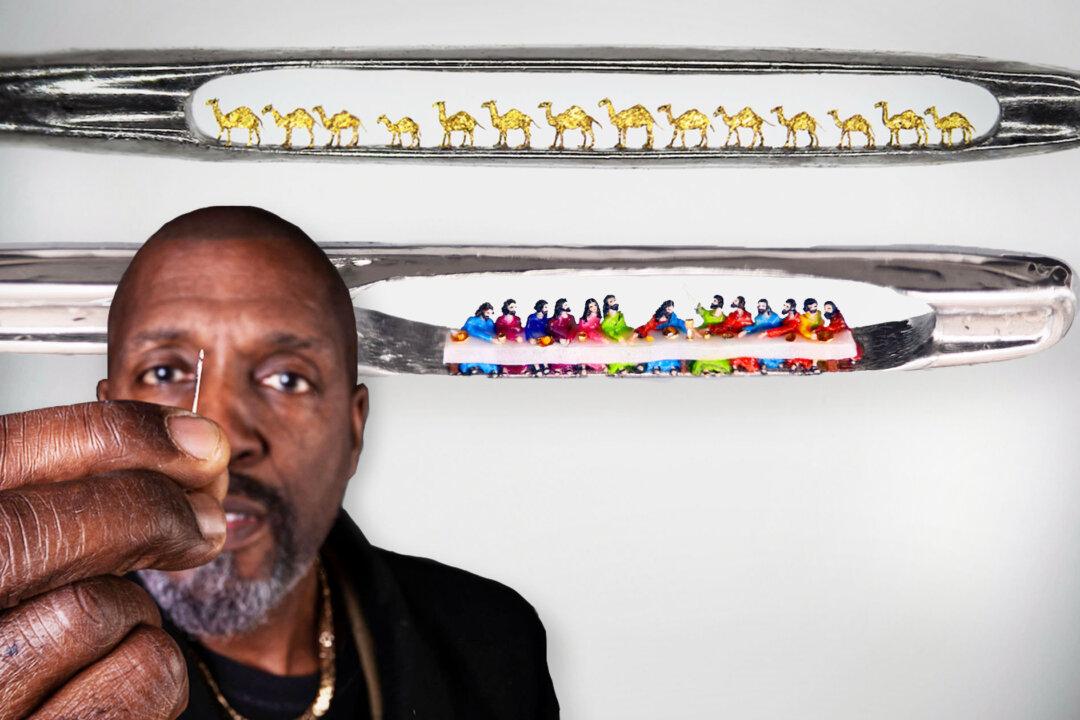A man with autism and dyslexia has turned his fascination for the microscopic world into miniature works of art, inspiring others to look more closely at both the world around them and the unique potential of each and every one of us.
Dr. Willard Wigan MBE, 65, grew up in Birmingham, England, where he lives today with his beloved dog, Stanley. He makes the smallest known sculptures in the world, each one positioned inside the eye of a needle. His body of work ranges from a teeny tiny Queen Elizabeth II to a procession of 14 camels, the details of which can only be seen under a microscope.





